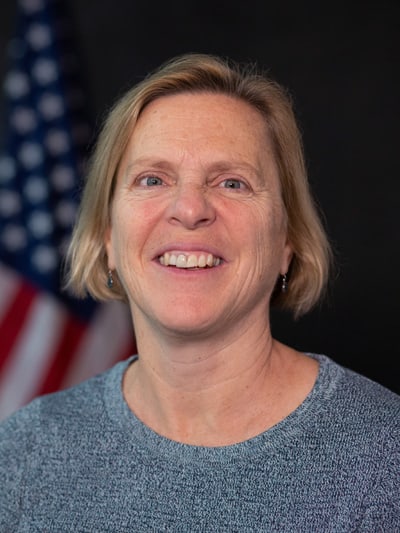Author
-

Emily Myers is the NAAG antitrust counsel and Chief Editor. She also focuses on attorney general powers and duties and provides assistance to attorney general offices as they consider these issues. She is editor of the 4th edition of "State Attorneys General Powers and Responsibilities" and the author of chapters on state antitrust enforcement in American Bar Association and state bar publications. Emily received her Bachelor of Arts in history from Brown University and her Juris Doctorate from the University of Pennsylvania, where she was an Arthur B. Littleton Legal Writing Fellow. She worked as an antitrust attorney in private practice in Washington, D.C., until joining NAAG in 1993.
In the context of an open records lawsuit filed by the ACLU against the County Prosecutors Association of New Jersey (CPANJ), the New Jersey Superior Court analyzed the relationship between the attorney general of New Jersey and the county prosecutors to determine whether CPANJ was a public entity. ACLU v. County Prosecutors Ass’n, 2022 N.J. Super. LEXIS 146 (N.J. Super. Dec. 22, 2022).
The ACLU requested documents from CPANJ pursuant to the state’s Open Public Records Act (OPRA) and the common law “right of access.” CPANJ denied the records request, on the grounds that it is not a public agency “subject to the dictates of OPRA or requests made under the common law right of access.” The ACLU sued, seeking disclosure of the documents.
CPANJ is a nonprofit association composed of the 21 county prosecutors in New Jersey. It has no staff or office and has revenue only from dues and educational conferences. Among other factors, the ACLU pointed out the relationship between CPANJ and the attorney general’s office to support the classification of CPANJ as a public agency:
- CPANJ regularly meets with representatives of the Attorney General of New Jersey … and is treated by the Office of the Attorney General [OAG)] as a partner in implementing statewide criminal justice policy.”
- “CPANJ regularly sends copies of its meeting minutes and agendas to the [OAG].
- CPANJ has statutorily designated seats alongside public and private entities on the Department of Law and Public Safety Police Training Commission, N.J.S.A. 52: l 7B-70(b)
The court concluded that CPANJ was not a public agency for purposes of OPRA. County prosecutors are not supervised by the county, but rather are supervised by the attorney general. New Jersey statutes require the Attorney General to consult with, advise, and supervise the county prosecutors “with a view to obtaining effective and uniform enforcement of the criminal laws throughout the State,” N.J.S.A. 52:17B-103. The county prosecutors are obligated to “cooperate with and aid the Attorney General in the performance of his duties,” N.J.S.A. 52:17B-112(a), the Attorney General has the power to supersede a county prosecutor, N.J.S.A. 52:17B-106, and to call prosecutors into conference to “discuss[] the duties of their respective offices,” N.J.S.A. 52:17B-112(c). “The Attorney General ‘has both the authority and the duty to establish and enforce uniform statewide policies, practices, and procedures to ensure the most efficient and effective use of the law enforcement resources of all other police and prosecuting agencies throughout the State.” The court also acknowledged that CPANJ “furthers the State’s objectives by assisting the Attorney General in the development of criminal justice policy.”
Despite the attorney general’s relationship with the county prosecutors, the court determined that CPANJ, “which is not a creation of state law, and which has no statuto1y powers or official authority of any kind” is not a public agency for purposes of OPRA.



